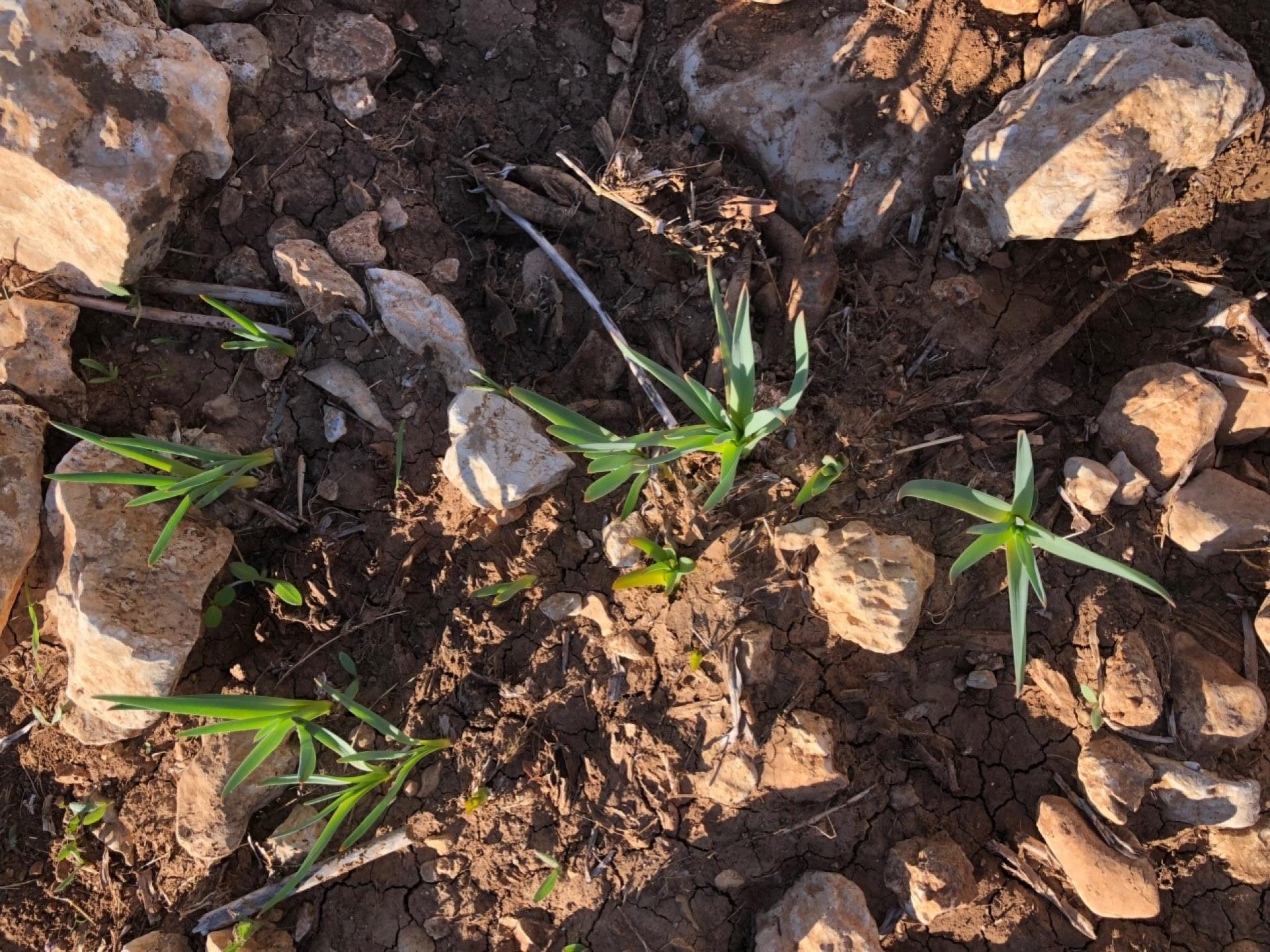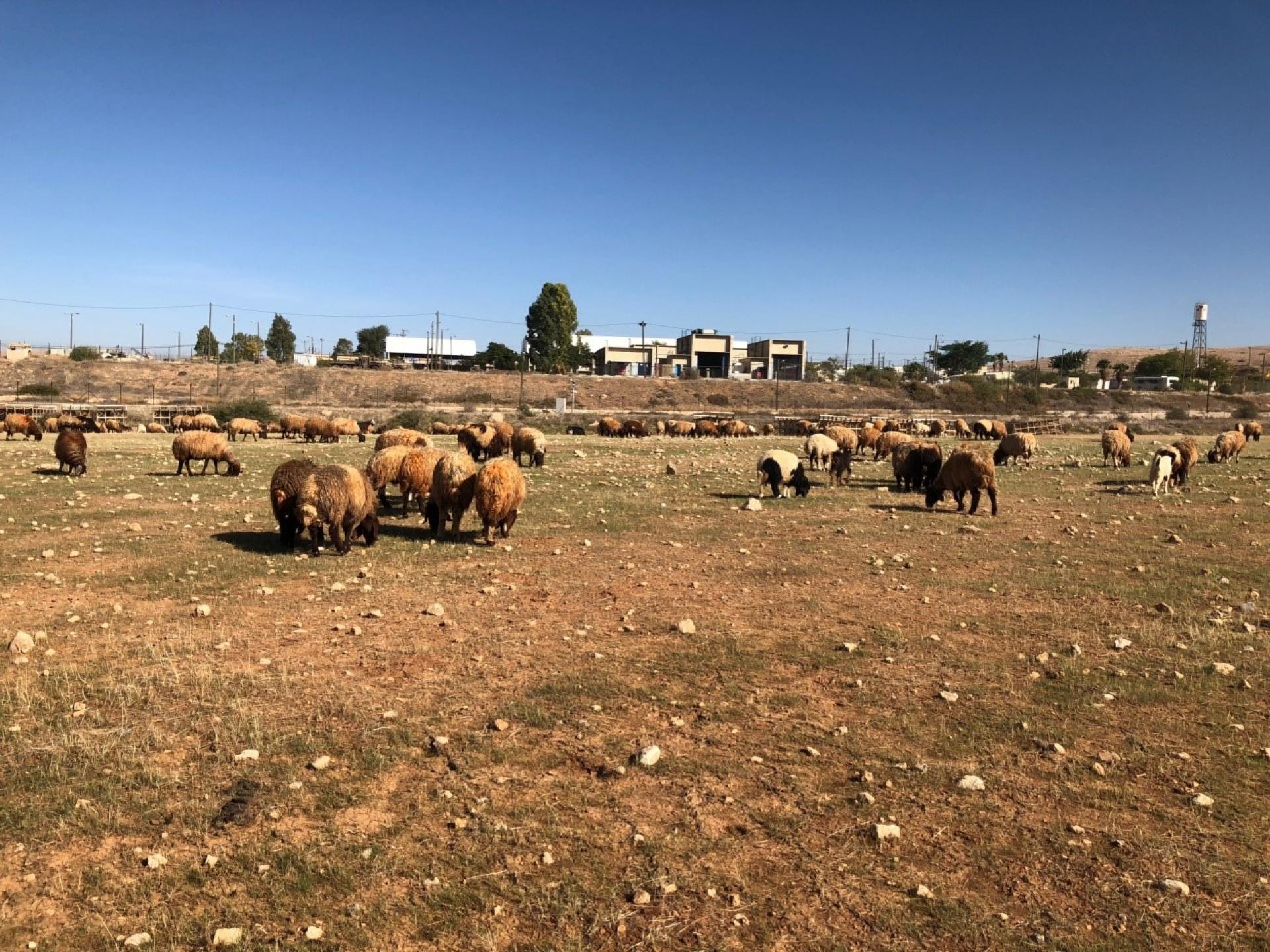The Palestinian Jordan Valley: first rains added green stains to the otherwise arid landscape


translation: T.H
A beautiful day, clear after last week’s rain, the Jordan Valley is greening, but large brown stains still catch the eye. Sheep and shepherds are delighted.
We began our day in Samra, fenced in by the army on both sides. Up the hill, to the east lies Umm Zuka, and below at the junction – Kefir Brigade base is situated. Thus the village is ‘protected’ on both edges.
Since we were already there, the shepherds decided to try their luck and graze in the grounds near the army base (Kefir), an area of which they are the legal owners.
We ventured out to pasture after having breakfast. Tiny flowers and greenery appeared out of the desert ground, the shepherd said these plants are short-lived, a week at the most. Only in March is the area really in bloom.
We reached the base vicinity, the fence lying between us and the army camp. The sun shone, the sheep feasted, and the whole world sang, until we saw a soldier approaching. We went into alert mode, and a relaxed and shy soldier came up to us and asked what we were doing there. We said, “Grazing, isn’t it obvious?” Keep a distance from the fence, he said. We kept our distance. The area is large but a part of it is declared “firing zone”. We therefore needed maps and the readiness to be ordered away anywhere by some excuse or other. Either that, or insisting on our claim with the maps, as happened not too long ago.
As we know, the army can always provide a reason and an excuse. “Firing zone” is the excuse to get rid of us wherever we are. We saw the soldier calling to find out whether he has succeed in his mission, or needs to provide some excuse to chase us off. At any rate our presence there made it clear how important it is. Chances are mostly that without us the Palestinians would have hurried home and not confronted him.
Later we were summoned to return to the encampment to meet the Red Cross personnel who had arrived. On previous days a fence began to be erected in their own privately-owned area near Umm Zuka, the base on the hillside. They complained to the Red Cross who had now come to speak with them and see for themselves. The fence being erected is on behalf of the settler-colonist who is creating his own settler-colony there, apparently backed up by the army, and doing as he pleases unhampered.
The Red Cross people had come to hear the complaint and have an acquaintance talk with a new representative on the job. He told us he had been in the area 20 years earlier and was amazed to discover how large the settler-colonies had grown since.
The RC representatives tried to coordinate expectations, listen to complaints and show empathy. It doesn’t seem they are able to help the Palestinians in their everyday lives or have some kind of effect on Israeli policy. True, they did deliver a tent or two to the latest demolition site by the army at Al Hadidiya. I don’t blame them. Nor do we help or change in any way, if we’re already speaking of responsibility…
Later the flock returned and we proceeded to a sumptuous lunch in the general eating area where all the family members were now assembled, meaning all the children and us, while the women cooked and ate in the neighboring tent.
We were also told that during the previous night the army came and confiscated two tractors in Al Hadidiya belonging to Palestinians from Bardala (if I’m not mistaken). They also arrested the tractor owners, claiming the tractors were stolen, although the men showed documents proving their ownership. In the morning the men were released. Not so the tractors. It’s the usual story that enables the state to impose exorbitant fines for releasing the tractors. Finally we visited the nearby encampments and delivered the equipment we brought them.
